Major reforms to streamline environmental approvals are within reach following the interim release of the Commonwealth Government’s independent review of the Environmental Protection and Biodiversity Conservation (EPBC) Act. The review – led by Professor Graeme Samuel – was commissioned late last year and follows sustained advocacy by UDIA National.
Streamlining environmental planning practices is one of UDIA National’s frontline national policy and advocacy goals – twice meeting both Environment Minister Sussan Ley and Prof. Samuels in the past year, as well as lodging a substantial submission to the review.
We have consistently argued the EPBC Act is inconsistent, complex and often acts as a barrier to residential land release and housing, as well as delivering sub-optimal conservation outcomes.
The review recognises ‘the Act is ineffective’, too many decisions are made on a ‘project-by-project basis’, and that it is largely true that ‘it duplicates state and territory regulatory frameworks for development assessment and approval’.
The review’s recommendations include:
- National Environmental Standards should anchor the new framework to provide clear benchmarks for defining and achieving environmental outcomes
- The Standards should set clear rules for decision-making to reduce discretion as well as provide clear and consistent rules for project proponents
- Allow for greater delegation to the states to carry out assessments and approvals on the Commonwealth’s behalf, subject to an accreditation regime
- National and regional (landscape) scale planning would benefit the system by managing threats at the right scale and to set clear rules to facilitate and manage competing land uses
- Having clear, legally enforceable rules via National Environmental Standards will allow for greater harmonisation with the states and territories and reduce duplication
- The Act should be reformed in the short-term to remove known inconsistencies, gaps and conflicts – with a comprehensive rewrite of the Act the ultimate goal
- The Commonwealth needs to overhaul its own referral processes
In further good news, the Commonwealth has responded to the report with a commitment to move on some of its signature elements. Environment Minister Sussan Ley has said they will:
- Develop Commonwealth-led National Environmental Standards to underpin new bilateral agreements with the states, and
- Commence discussions with willing states to enter agreements for ‘single touch’ assessments (removing duplication by accrediting states to carry out assessments and approvals on the Commonwealth’s behalf)
- Explore market-based solutions for better habitat restoration that will improve environmental outcomes while providing greater certainty for business.
The reforms sit neatly within the Government’s deregulation and red tape agenda to help drive economic recovery, investment and major projects. We will continue to engage with the Commonwealth on the reform agenda to ensure the EPBC Act finally lives up to its promise and removes the substantial compliance burden placed on projects.
A second round of consultation and workshops will be held with stakeholder groups – including UDIA National – ahead of the release of Prof. Samuel’s final report in October. We have also previously written to the Commonwealth seeking to be involved in the development of the new standards to ensure they reflect industry priorities.
Meanwhile, our COVID-19 recovery advocacy plan – ‘Helping Australia Bounce Back’ – also makes the case for clear and strict deadlines to assess existing housing projects caught in the system.
These will help unlock investment and fuel the pipeline of development projects needed in the short- and medium-term to sustain economic activity, jobs and wages.

